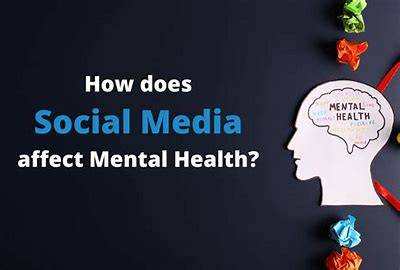The Impact of Social Media on Mental Health
Social media has become an integral part of modern life, connecting individuals across the globe and providing platforms for communication, entertainment, and self-expression. While it offers many benefits, such as fostering relationships and access to information, there is growing concern about its impact on mental health.
One of the most significant ways social media affects mental health is through the phenomenon of social comparison. Platforms like Instagram, Facebook, and TikTok often present curated, idealized versions of people’s lives, where users showcase their accomplishments, beauty, and happiness. For those scrolling through their feeds, it can create unrealistic expectations and feelings of inadequacy. Constant comparison to these "perfect" images can lead to low self-esteem, anxiety, and depression, especially among younger users who are still developing their sense of identity.
Another detrimental effect is the rise of cyberbullying. Social media gives individuals a sense of anonymity, which can embolden negative behaviors like trolling, harassment, and online bullying. The ability to hide behind a screen makes it easier to target others without facing immediate consequences. Victims of cyberbullying can experience severe emotional distress, leading to feelings of isolation, sadness, and in extreme cases, suicidal thoughts.
Moreover, the addictive nature of social media is another contributor to mental health struggles. The constant notifications, likes, and messages trigger dopamine, the brain's reward chemical, reinforcing the desire to check apps repeatedly. This can result in excessive screen time, disrupting sleep patterns, and increasing feelings of stress and fatigue. People often prioritize their digital lives over face-to-face interactions, leading to a decrease in real-world social connections, which are essential for mental well-being.
However, it’s not all negative. Social media can also have positive effects when used mindfully. It allows individuals to stay connected with loved ones, join support communities, and raise awareness about mental health issues. Platforms have increasingly been used to promote body positivity, self-care, and mental health resources, offering a space for people to share their experiences and find solidarity.
In conclusion, while social media has revolutionized communication and connectivity, its impact on mental health cannot be overlooked. It is crucial to maintain a balanced approach, setting boundaries on screen time, engaging in positive online communities, and fostering self-awareness to mitigate its negative effects. By doing so, we can harness the positive aspects of social media while safeguarding our mental health.



No comments yet
Be the first to share your thoughts!